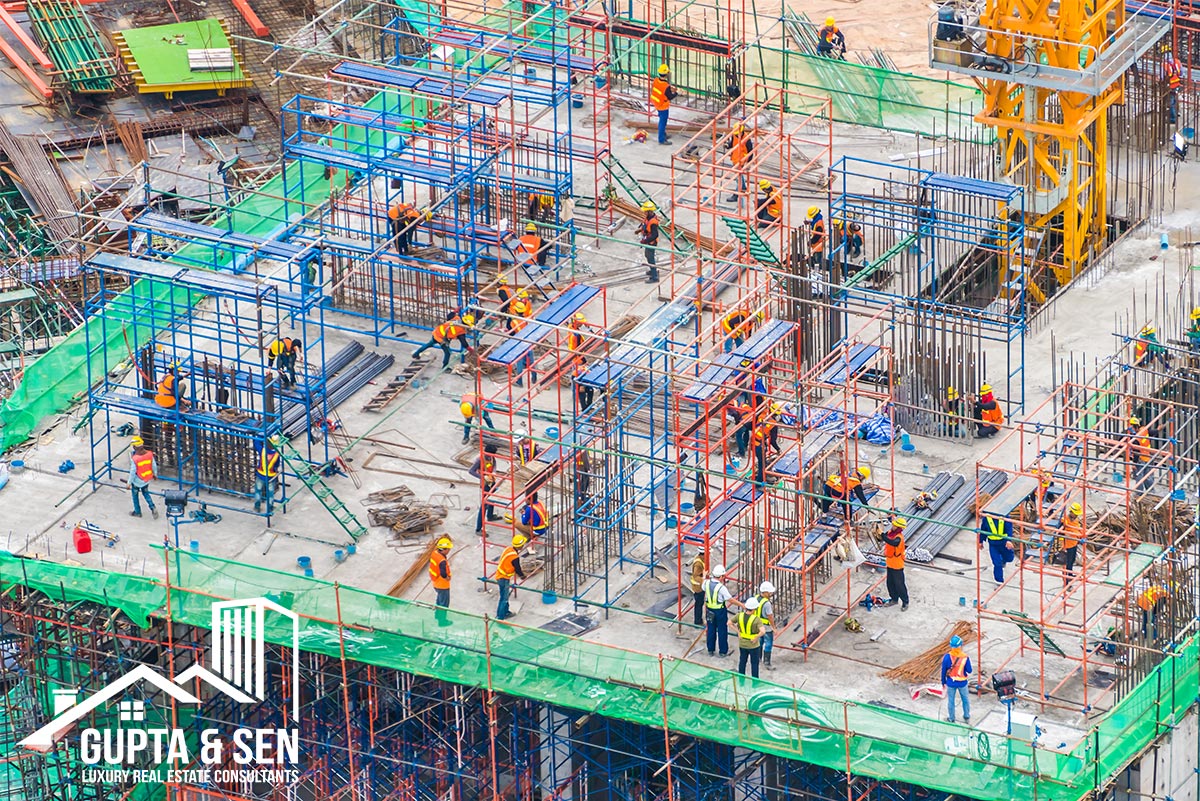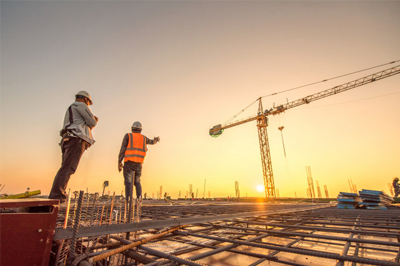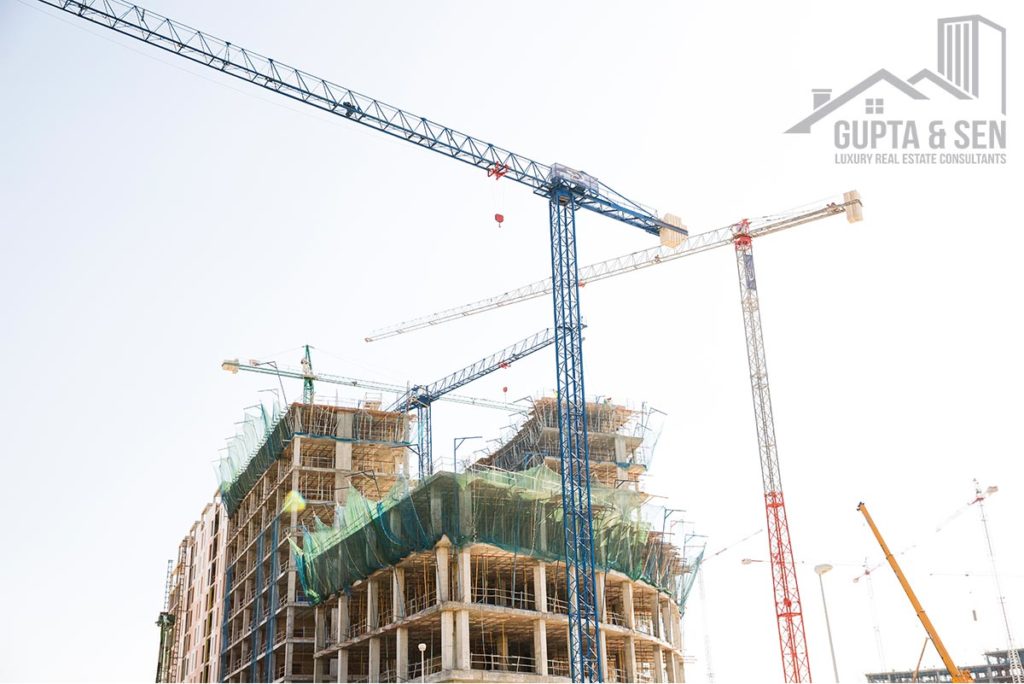Why Real Estate Development Is An Attractive Business
There are few businesses in India today that offer as many rewards and opportunities for success as real estate development. India’s cities are bursting apart at the seams. There is a need for planned real estate development not just on the outskirts of our big metros but also development to create new cities altogether! But Real Estate would not be such an attractive and lucrative business and it would be like any other business if it wasn’t for the fact that real estate development is first and foremost about land. And what is so special about land? Because land is limited and extra land is not being produced not now and not in the near future! Land is unique. No part of land on one location on Earth resembles land in any other location on the planet. Land is unique in it’s location as well as it’s physical characteristics. Land cannot be destroyed. You can mine the land, blow it up with dynamite and move the dirt but you can never destroy the surface of the earth. Think about it this way – our homes, cars, factories human beings and everything else on the planet decays and eventually disappears but the “earth” lives on forever! This is why land will always be seen as good collateral and lenders will always consider it as good investment. People may come and go but the land is always there!
Land is also immobile. You cannot pick up the land and place it somewhere else! Nor can you lose it, hide it or steal it! You cant go looking for a property you own and say, “Oh it was here yesterday and now it’s gone” 🙂 Your land will always remain where you last saw it. To sum it up, uniqueness, indestructibility and immobility are the hallmarks of real estate. Real Estate Development which is the branch of real estate that constructs buildings has the following features that make it an attractive proposition:
Leverage
Leverage is the biggest advance of real estate development. Leverage is using other people’s money to make money for yourself. When a residential or commercial building is constructed today, chances are high that at least 75 % of the total cost which includes the cost of land, construction, marketing and other overheads are financed by somebody else which in most cases is usually a commercial bank or other investment funds. In return the developer pays interest to the lender. Lenders allow the developer to use leverage because the property that is being developed should rise in value through the efforts of the developer. The developer can be sure that the lender will use the developed property as collateral on the loan. So if the developer is unable to finish the project, the developer will foreclose on the property which is now worth more than the land it sits on because of the developer’s efforts.
This is the unique advantage that property developers have over manufacturers because land is unique and if it is built for a specific market then it should not be difficult to sell. By contrast the manufacturer of say TV’s or mobile phones does not have this advantage. A lender will not lend as much to a television maker or any other manufacturer because what would a lender do if he was to foreclose on ten thousand TV sets!
The concept of leverage is important to the “profitability” factor of real estate development. For example, the profit for a small real estate developer developing an apartment building is typically between 10 – 20% of the sales price of each unit. You might think that 10 % if not a great return given the risks involved in real estate development. You might think that one could make as much or even more by playing the stock market and you may be right (though we wouldn’t put our money on it!). The big difference here is that when you play the stock market you are using your own money while when in the real estate development game you are using some one else’s money!
The real talent lies though in being able to build a house for ₹ 85 lakhs and finding a client who is ready to pay ₹ 1 Cr. for it. That is the real challenge that all real estate developers face – to build profitable, affordable housing by containing costs and building it for a specific market that has the willingness and the ability to buy your houses. Both these issues we will discuss in later articles.
Demand
There will always be demand for new construction especially in a growing economy like India’s. There are two main reasons: A growing economy needs new buildings not only on vacant land but also for the fact that old buildings crumble and wear out. Be it housing, shopping malls, schools, colleges and industrial facilities – they all get old after a few decades and need to be replaced by new constructions. Millions of homes are lost every year to aging, fires, heavy rains, flooding, hurricanes and other hazards and need to be replaced by new constructions. The population increase in India also adds to the pressure to build. While most of the world’s population rates have declined, India’s population rate still continues to grow and will grow until the mid to later parts of this century. Changes in lifestyle has added to the demand for new homes in urban centres. Whereas earlier large joint families were the order of the day, adults now prefer to remain with their own families in their own homes. With the population of singles, divorcees, single-parent households, unmarried couples, healthy retirees rising the housing needs of India also have risen. The migratory nature of the Indian population and the increase in second homes has also added to the need to develop new projects everywhere.
Self-Employment
Most people work for a living. Some are happy working for others. Some however view self-employment as the best way to make a living. They know that for better or for worse they are the makers of their own destinies. Every year millions of people pursue their dreams and start their own businesses. If achieving the heights of success and being your own boss is what motivates you and of course earn tons of money while doing it then real estate development offers the best of all worlds.
Personal Satisfaction
Developing real estate whether residential or commercial provides one with a great feeling of accomplishment. The entire process of real estate development is a creative process that begins with locating a parcel of land and ends with the construction of a building. Real Estate Developers are an important cog in the wheel of the Indian economy and provide large infusions of capital not only into the economy but also into the coffers of the Indian Government. Besides Real Estate is one of the largest employers of both white collar and blue collar manpower in India employing millions of people and providing them with steady jobs and work. This is the reason why in most countries of the world, the construction industry is referred to as the “backbone of the economy”.
The Players in Real Estate Development
There are 4 main players in Real Estate Development: Speculators, Sub Dividers, Land Developers and Builders:
Speculators
Speculators simply buy raw, undeveloped land, hold onto it and sell it at a later date for a large profit. They do not do anything to develop the land. The speculator knows through insight or through research that land values in a certain area will rise in a short amount of time. The reason could be a new rail or metro line, upcoming airport or interstate highway or even an important upcoming building or institution such as a famous educational institute, temple, guru’s ashram, shrine, sports stadium etc. Land speculators always try to buy land in the direction of growth. The big advantage of land speculation is that costs are lower than development with very high gain potential. The disadvantages are that raw land does not produce any income, financing raw land is difficult to get and the future increase in valuation that is required to make the investment profitable may or may not happen.
Subdividers
Subdividers buy raw land but go one step higher and try to change the existing rules to a higher or more valuable use of the land. One example is to buy land deemed residential and convert it for industrial or commercial use. Subdividers also try to divide the land into blocks, building lots and roads in line with the government, defence ministry, environmental authority and the local municipal authority’s rules and regulations. Just like speculators, subdividers gamble upon the fact that the land that they buy will be ready for development soon. Subdividers reduce the risk potential by engaging in market research and studies to see if development is likely to happen in the foreseeable future. When it comes to buying land, Subdividers buy land from land speculators or from private individuals. They usually end up selling to a land developer or a land developer cum builder.
Land Developers
Land Developers buy land to create the infrastructure that will eventually make it possible to create a community or a settlement on the land. They will install water, sewerage, utilities, roads and footpaths. Of course before doing this they will have to obtain all government and municipal approvals.
Builders
Builders erect buildings on the property such as homes, apartment blocks, stores, warehouses or factories. They are the final stakeholders in the development process.
With the exception of Speculators, each of the above players successively adds value and profits to the land at each stage. For example obtaining government, municipal approvals and also getting the defence & environment ministry’s clearance is a big challenge. Many real estate developers are not very enthusiastic about dealing with the government and will pay a premium to a Subdivider to buy land that has the necessary approvals in place to build. Likewise many land developers do not seek the responsibilities of construction and becoming a builder and so they sell their improved lots of land to builders.
Of course it goes without saying that the most profitable procedure for a person or company is to perform the entire operation i.e. to buy land, get approvals from authorities, put up the infrastructure and build the buildings. The value of the project increases with every step and one can also obtain favourable financing rates if the builder and land speculator is the same person because a building on a land is better collateral than just the vacant land alone. While the risks may seem big for one person to do the job of all the aforementioned parties the risks can be lessened if you do your homework well and make decisions based on fact and hire experienced and thorough professionals and consultants for the project.
Every player mentioned above can be active in all the markets such as residential, commercial and industrial. Our emphasis on the articles on our blog will only focus on residential development because according to us, residential development offers the new developer a better chance to enter the business of real estate!
Do not miss a single article!
Submit your email id to get new articles directly into your email inbox!
- Paperwork and Pricing of a Property - April 4, 2024
- What type of Real Estate Investor Are You? - March 25, 2024
- Various Ways to Profit as a Real Estate Investor - March 22, 2024






















